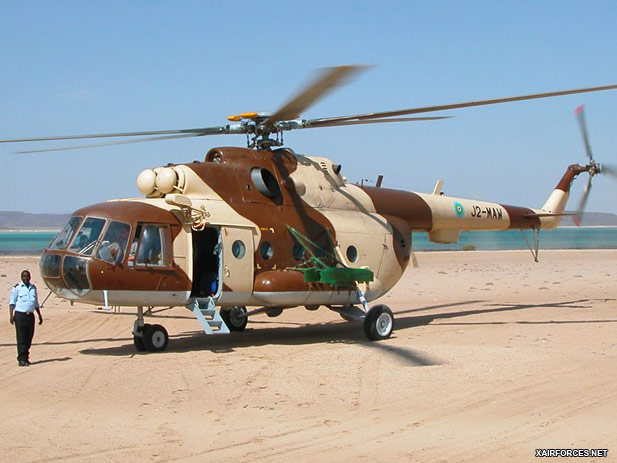
Djibouti Adds 850 Soldiers to Peacekeeping Force in Somalia

The tiny country of Djibouti will send about 850 soldiers to an African Union peacekeeping mission in Somalia this month, a spokesman for the mission said Wednesday. It is only the third country to do so after a series of unmet promises from a number of African nations.
The troops from Djibouti, in the Horn of Africa, will join roughly 9,000 soldiers from Uganda and Burundi, which have been supporting Somalia’s weak, American-backed, transitional government since 2007. The government, which has been fighting Islamist insurgents known as the Shabab in Somalia’s capital, Mogadishu, has virtually no influence outside of the city, and despite a nationwide mandate, neither does the African Union.
But the peacekeepers have largely pushed the Shabab from Mogadishu, though the rebels still carry out hard-hitting attacks. For a peacekeeping force trying achieve an objective that no entity has accomplished in nearly 20 years — pacify Somalia — the Djiboutian troops will be welcome. The peacekeeping force is currently set at 12,000 troops, but peacekeeping officials hope for at least 20,000.
“Our forces have been very adaptive, adapting to the terrain, fighting in built-up areas,” said Lt. Col. Paddy Ankunda, a spokesman for the peacekeeping force. “But it’s been difficult.”
More and more, countries in Africa are joining the battle in Somalia. Kenya sent hundreds, if not thousands, of soldiers backed by tanks and gunships across the border to clear out the Shabab from a number of strongholds in southern Somalia. A high-ranking East African official said Tuesday that the heavily militarized country of Eritrea, which borders Djibouti and Ethiopia, had sent cargo planes loaded with weapons for the Shabab to southern Somalia, an accusation Eritrea rejects. Ethiopian troops have been spotted occupying Somali territory near a Shabab stronghold, and Uganda is sending 2,000 more of its own soldiers to join the peacekeeping force in Mogadishu.
The governments of South Africa, Rwanda and Tanzania have voiced support for Kenya’s operation, and this week Kenya and Somalia asked for “big countries,” including the United States and European nations, to help in a naval blockade of the highly coveted Shabab-controlled seaport of Kismaayo.
But as bad weather has bogged down Kenya’s troops, the Kenyan Air Force has delivered a number of damaging strikes. The International Committee of the Red Cross said an airstrike on Sunday hit a camp for thousands of displaced Somalis suffering from the effects of a famine, killing a number of civilians.
On Tuesday, Kenya’s military issued a chilling warning to residents in 10 towns under the Shabab’s influence, warning that further strikes were “imminent” and that the towns would be under attack “continuously.”
On Wednesday, there were reports that hundreds of civilians were fleeing their homes in advance of the threatened attacks. “I have only two kids, and I cannot see myself dying,” said Aisha Ali from the town of Elasha Biyaha. “I have to go to the safe zone.”
But in some areas, the bad weather that was bogging down Kenya’s army was bogging down civilians, too.
“They do take the warning very serious, but with the rainy season and the roads being as bad as they are now, it is very difficult for people to move,” said an official with a humanitarian organization operating in one Shabab-controlled area. “There is a certain level of fear amongst the population.”
Mohammed Ibrahim contributed reporting.
Source: MOGADISHU, Somalia - 2 November 2011 - By JOSH KRON - http://www.nytimes.com
Photo: Djibouti Air Force Mil Mi-17 Hip-H (Registration: J2-MAW) Ambouli, 2006 (Photo by http://3.bp.blogspot.com)
(22.11.2011)
|